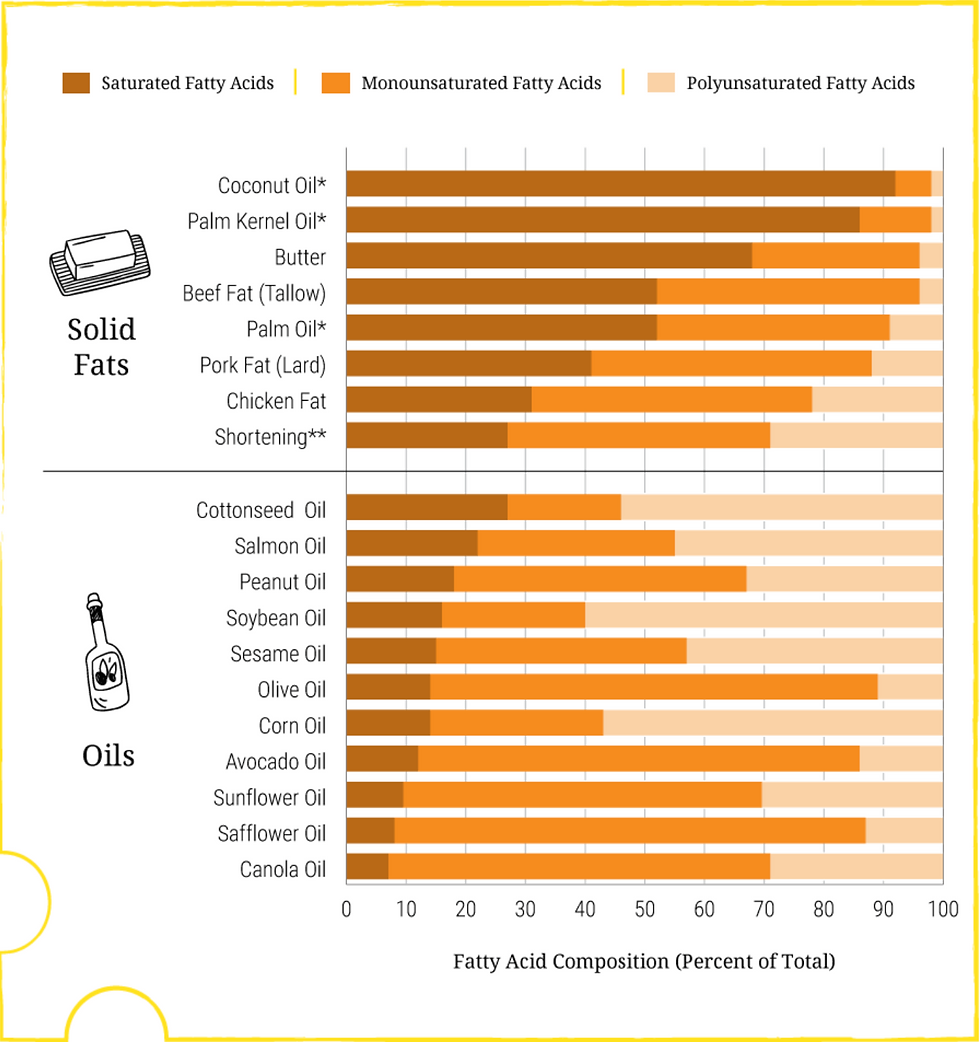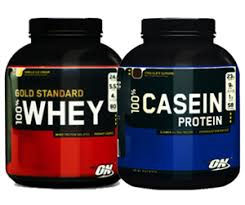The Importance of Dietary Fat
- schmidttm6
- Oct 16, 2020
- 3 min read
Dietary fats play an important role in your diet. They provide the body with energy, support cell growth, help protect your organs, and help your body absorb nutrients and produce hormones (1). Fats are essential to keep your body healthy and functioning properly. That being said, it's important to know what types of fat you should consume and types you should avoid. There are 4 types that you should know: saturated fat, trans fat, monounsaturated fat and polyunsaturated fat.
Saturated Fat and Trans Fat
The American Heart Association recommends that only 5%-6% of your total fat calories should come from saturated fat. This recommendation is made because too much saturated fat can raise your LDL cholesterol (bad cholesterol). Why is LDL cholesterol bad? LDL cholesterol attaches to the inside of our blood vessel. This buildup is called plaque. As the LDL cholesterol builds up, it causes the insides of the vessels to narrow. This makes it difficult for the heart to pump the blood from the heart to the rest of the body. An LDL cholesterol level that is too high increases your risk of heart disease. An easy way to spot saturated fat is if it's solid at room temperature: butter, coconut oil, animal fat (red meat in particular).
Trans fats lower HDL cholesterol (good cholesterol) and increase LDL cholesterol. Luckily for us, artificial trans fats were banned in the U.S. in 2015. You shouldn't be horribly concerned with this fat now, but some products can be listed as 0 g trans fat if it contains ≤ 0.5 g of trans fat per serving. Look for "partially hydrogenated oils" on the ingredients list of the nutrition label.]
Unsaturated Fats - Monounsaturated and Polyunsaturated
Monounsaturated fats, in moderation, help reduce bad cholesterol and lowers the risk of heart disease and stroke. You can find monounsaturated fats in plant-based liquid oils and other sources: olive oil, canola oil, peanut oil, sesame oil, avocados, peanut butter, nuts and seeds. Monounsaturated fat will be liquid at room temperature and begin to harden when chilled.
Polyunsaturated fat also helps reduce bad cholesterol and lowers your risk of heart disease and stroke. It also provides vitamin E in your diet, which is an antioxidant vitamin and essential fats that our body isn't able to produce: Omega-6 and Omega-3. You can find polyunsaturated fats in soybean oil, corn oil, sunflower oil and some fish, such as salmon and tuna.
The image below is a good reference when choosing what type of fat you should buy and consume.

"Fatty acid profiles of common fats and oils" (2)
How much dietary fat does an athlete need?
Unfortunately, research has not found an ideal amount of daily fat athletes need to help improve athletic performance. However, most athletes that follow the protein and carbohydrate guidelines tend to get 20-35% of their daily calories from fat (3). On this blog the concern isn't only about athletic performance, but also life-long health. To keep a healthy heart, you should limit your fat intake to 30% of your total daily calories (4). If less than 20% of your calories come from fat then it could reduce the intake of nutrients, such as fat-soluble vitamins and essential fatty acids (3). Not eating enough fat could hinder your performance and will affect your health if done over a prolonged period of time.
For your health, you should aim for 20-30% of your calories to come from fats. And only 5-6% of the fats you consume should be saturated fat.
Sources
Dietary Fats. (n.d.). Retrieved September 9, 2020, from https://www.heart.org/en/healthy-living/healthy-eating/eat-smart/fats/dietary-fats
Jedha. (n.d.). The definitive guide to fat and diabetes. Retrieved September 11, 2020, from https://diabetesmealplans.com/10900/fat-and-diabetes/
Thomas, T. D., Erdman, K. A., & Burke, L. M. (December 2015). Nutrition and Athletic Performance. Medicine and Science in Sports and Exercise. 543-568. doi: 10.1249/MSS.0000000000000852
Dr. Gregory Brown, (personal communication, August 27, 2020).
.png)



Comments